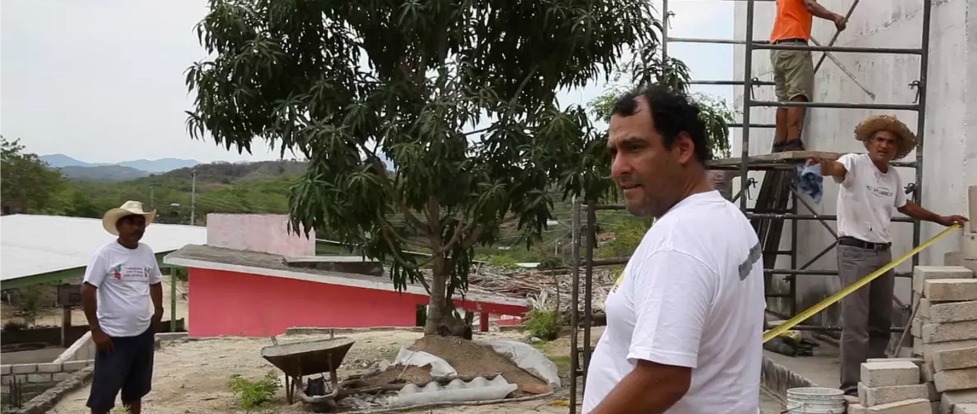I do a lot of different things. I’m a university professor, a sound engineer, I do public policy work, I advise telecommunications councils on things like net neutrality and connectivity, but mostly what I try to do is solve communications problems. And that’s not always sexy. Often, that’s something like going into a community to help them set up a low-power community radio station, but the difference that the low-power station can make is huge.
Lately, I’ve been working in a place called Cacahuatepec, which is in Guerrero State here in Mexico. It’s not that far from Acapulco regarding distance, but it’s very cut off from the rest of the world. Until quite recently, it didn’t have a radio station, television, or newspapers. There is one priest that comes in once a month. He does marriages, baptisms, first communions and prayers for the dead in one mass. Most of the men in Cacahuatepec leave to work in other Mexican cities or the United States. The government has no presence in Cacahuatepec, there are no police. It’s in an area that’s mostly controlled by the drug dealers and drug producers. On the road in, you pass a checkpoint that is controlled by the army or the marines, and after that they just kind of wave goodbye. It’s like the Wild West. There’s no electrical grid. If you forget a screwdriver, that’s it; your day is lost. You can’t even buy sellotape.
It’s also in a floodplain. That’s how I first got involved in the community. Back in 2013, two hurricanes clashed over Guerrero State. One coming from the Pacific, and one from the Gulf of Mexico. A dam about 10 kilometres up river from Cacahuatepec broke as a result, and 20 people died. The only reason more people didn’t die was that some fishermen working on the river managed to warn people so that they could run to the hills. So that’s how we got interested in bringing communications to these people so that they could get warnings about the weather. And, so that they could also get on the Internet, have email, all these things that could help make it a wealthier community, or a less poor one.
This is a hard place to work. With no government support, you’re only working with the protection of the community. If someone doesn’t like you, it’s dangerous. A member of my team got into a conflict with one of the local drug kingpins and got killed. He fell in love with a girl who was connected to a drug family. One stupid mistake was all it took. The stakes are high, but also that’s why I keep coming back. Because the stakes are even higher for the people here.
Internet connectivity is changing people’s lives here. It’s changing how families work. It used to be that when your father or brother or husband went away to work in the States, the only way you had of remembering he existed was a photo. That, and occasionally someone would say ‘Hey, your husband sent you $1,000. You have to walk four hours into Acapulco to pick it up at the Western Union.” And the men would come home, and people would say “Oh, while you were in cropping the fields in Alabama., your mother died and we buried her, and now she’s happy in heaven with God.” Now, they can be in contact every week, with VoIP or over Skype. They can say “Hey, your mother’s not doing well, come home,’ or “We know you can’t get back, but we’ll put her on so you can talk to her.” We take these sort of things for granted, but here they’re life changing.
On a less emotional level, people are learning how to build things from the Internet. One of the villages is building an aqueduct built from bamboo. They have to bring water from the river, into the town. It uses a positive displacement pump, and they learned how to do it from the Internet. The women there make a lot of embroidered products, and they’re learning new patterns from the Internet.
Right now, things are on hold a bit, because the situation on the ground has gotten more dangerous. We’re hoping things settle down soon because we have so much work to do. We still have a lot of communities left to connect.
The key is not to go into that area and say “Well, here I am, the magician of communications, now you have the Internet, bye bye”. You want to build capacity; you want to give these young people that still live there a chance to start a business that is not drug related or crime related, or tourist related. You want these people to build a new society using communications as a tool.
Impressed by Luis’s story? Tell your local policy maker. Share this and the Policy Framework for an Enabling Internet Access and help make access possible. Keep watching our blog throughout the week for our Community Networking Series.
You can also meet Luis today as part of the 2016 Internet Governance Forum. Here’s how to take part .

